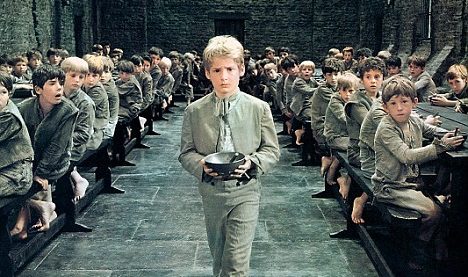This year marks the 100th anniversary of the Triangle Shirtwaist Fire, and while a cake with one hundred burning candles might seem inappropriate, some have found a better way to commemorate this tragic loss of shirtwaist material: dismantling the labor movement it spurred. Happy Anniversary!
In March of 1910 under working conditions a Siberian Gulag survivor would object to before being beaten with a rusty shovel, 146 mostly young women, teenage girls, Jewish and Italian immigrants, died in a fire because their escape route had been locked to prevent workers from slipping away with valuable scraps of fabric during coffee breaks they didn’t have. In fairness to Triangle’s proprietors, Isaac Harris, a Russian immigrant, and Max Blanck, born with an unnecessary “c” in his name, they were just protecting their status as greedy factory owners. While paying their workers thirteen cents an hour for a thirteen-hour day, they were earning one million dollars a year; a stolen shirtwaist here and there and pretty soon they’d be earning less than two thousand times as much as they paid their typical worker, and would have to cut down on luxuries, like shirtwaists. They even charged their workers for electricity and docked their pay for needles used, earning them the title “Shirtwaist Kings,” which played better in New York’s social circles than the more accurate “Greedy Soulless Pricks.”
But the gruesome aftermath of charred dead bodies littering New York’s tony streets forced state and federal governments that had refused to regulate industry to finally intervene leading to unprecedented reform, including safety standards, minimum wages, limited hours, child labor laws and recognition of workers’ rights—you know, “job killers” that somehow didn’t murder a single job.
And here we are one hundred years later, lessons learned… rolling back worker gains, defanging already toothless unions by eliminating their right to bargain (because bargains are for bosses!) and attacking luxurious municipal pension plans, after looting them to invest in toxic securities and magic beans. Republican legislators “voted” to eliminate collective bargaining for public employee union workers in Wisconsin and Ohio, and a similar Republican-sponsored bill is pending in Indiana. Not to be outdone, Democrats have a their own union-busting proposal on the table in Massachusetts, just to show that they can be assholes too.
Even the NFL has gotten into the act, locking out players rather than reaching a new collective bargaining agreement. Why? Because their current economic model sure sounds unsustainable: after splitting the first collective billion dollars in earnings thirty-two ways, they have to share 60 percent of anything above that with players. What they want: two billion dollars to split thirty-two ways! Which works out to a pay cut of about six hundred million dollars. Even Harris and Blanck would think, Wow, these guys are assholes.
The Triangle workers themselves would be pretty appalled if they were alive today, not to mention incredibly old, to see a workplace remarkably unchanged except for annoying cell phone use: there’s the same penchant for union-busting, and familiar disdain for immigrants who come to this country and take those jobs Americans want, like dying in a factory fire for eight bucks a week. And while women no longer have to pay for their needles (except addicts in H.I.V.-fighting needle-exchange programs defunded by the GOP), one hundred years later they still earn only about 80-percent of what their male counterparts get for doing the same job but with testicles.
So on the one-hundredth anniversary of one of the most significant turning points in American labor, we honor not the workers whose deaths shocked us into mandatory cigarette breaks, but the entrepreneurial spirit of business owners who lock workers in and players out, with one final note: acquitted on manslaughter charges, Harris and Blanck subsequently lost a civil suit forcing them to pay compensation in the amount of $75 per deceased victim. But by that time their insurance company had paid Blanck and Harris about $60,000 more than their reported losses, or approximately $400 per casualty—a tidy 533 percent profit per dead worker.
Even NFL owners would think, Wow, those guys were assholes.
